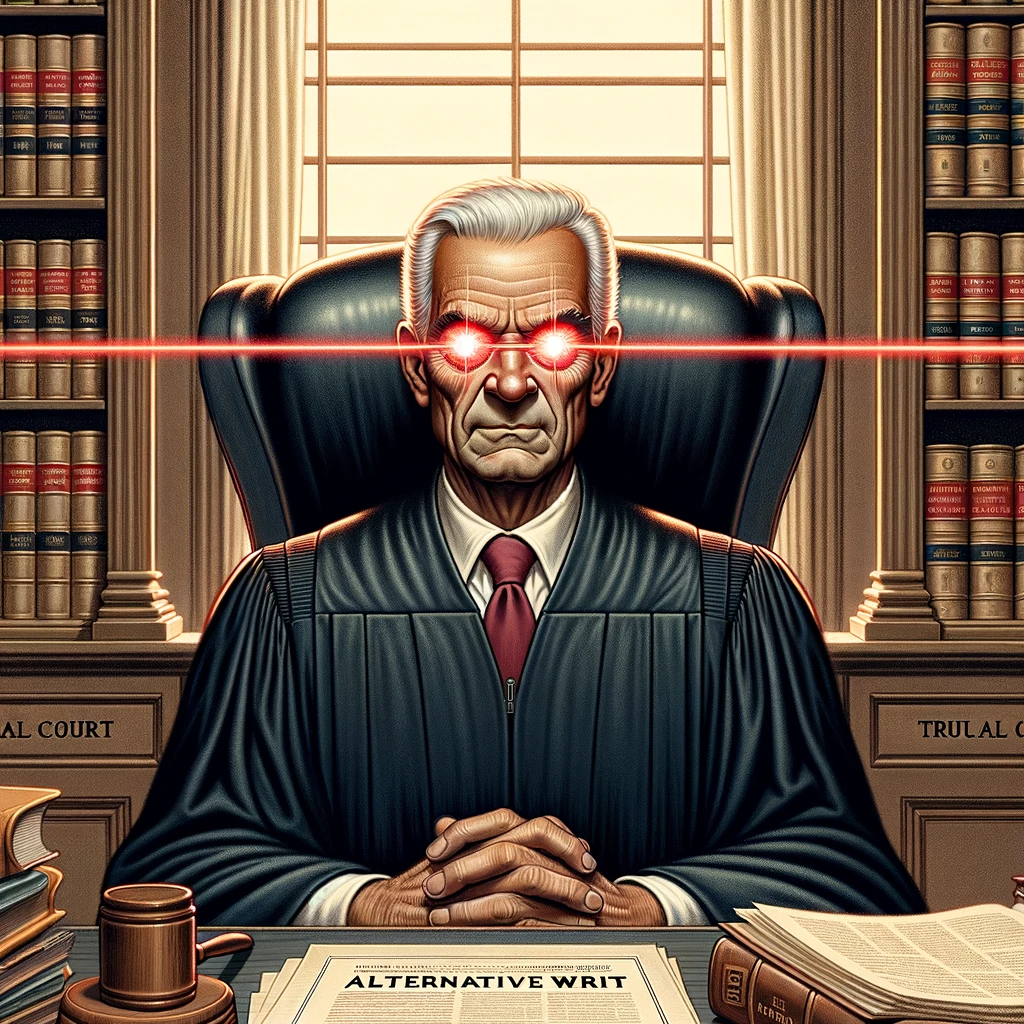
At the trial in a Latino-on-Latino attempted murder in People v. Sanmiguel (D2d6 Oct. 8, 2024 no. B328160) [partial. pub.], the prosecutor exercised a peremptory challenge of a Latino prospective juror. Under the Racial Justice Act, upon the defendant’s objection the prosecutor had to explain the reasons for the strike to satisfy the court that it was not based in racial bias or stereotypes. The prosecutor explained that the juror wasn’t paying attention and was disengaged with the other jurors. The judge confirmed that was his impression as well. And besides, the victim was Latino, too, and there was another Latino prospective juror that the prosecutor did not strike.
While the Court of Appeal affirmed, there was a three-way split of opinion. The defendant argued that the judge did not state on the record the precise statutory language to justify the strike. Writing for the majority, Presiding Justice Gilbert reiterated his opinion in in People v. Uriostegui (previously discussed in "The Racial Justice Act Is Unconstitutional,” Apr. 11, 2024), that while the judge does need to justify the strike on the record, the explanation does not need to deploy “the talismanic phrase ‘I find by clear and convincing evidence the reasons of the prosecutor for the peremptory challenge bear on the prospective juror’s ability to be fair and impartial in this case.’” This, PJ Gilbert previously said, “is taking literalism into the realm of the absurd.”
So PJ Gilbert concluded that the judge’s informal explanation on the record, agreeing that the prospective juror did, in fact, seem disengaged and not to be paying attention, was enough.
Concurring, Justice Yegan—as he did in Uriostegui—explained that the Racial Justice Act is unconstitutional. The most fundamental principle of appellate review is “‘[a] judgment or order of the lower court is presumed correct. All intendments and presumptions are indulged to support it on matters as to which the record is silent, and error must be affirmatively shown.’” (Denham v. Superior Court (1970) 2 Cal.3d 557, 564.) This means that the “reviewing court indulges in all reasonable inferences to uphold any ruling on appeal.” And that “We review the ruling of the trial court, not its rationale.”
But “[i]f this statute passes constitutional muster,” says Justice Yegan, “over a hundred years of Supreme Court precedent has been "overruled.””
The Racial Justice Act also violates the California Constitution, which charges the court to affirm judgments unless the court determines there has been a “miscarriage of justice.” Just as the court “cannot force the executive branch of government to charge someone with having committed a crime,” and just as the court “cannot force the legislative branch of government to enact or refrain from enacting a statute,” so those other branches “cannot tell judges how to judge. These are basic "separation of powers" observations which have stood the test of time. They should not be abandoned.”
Justice Cody would have reversed and found that the prosecutor’s peremptory challenge was based on racial stereotypes. Addressing Justice Yegan’s separation-of-powers objection, Justice Cody noted that "[b]ecause the state constitution does not limit the Legislature's power to define a miscarriage of justice, we must conclude it has properly exercised its authority to do so here." (People v. Simmons (2023) 96 Cal.App.5th 323, 339.) (Note that Simmons is another RJA case, authored by PJ Gilbert.)
Justice Cody explained that, according to statute, a prosecutor’s perception that a juror is inattentive is presumptively based in racial bias. PJ Gilbert had thought it obvious why an inattentive juror was unacceptable. But Justice Cody would have stuck to the statute, which required an explicit reason put on the record why it “mattered” that the juror was inattentive. “One may well wonder,” Justice Cody allowed, “why behaviors like inattentiveness would require further explanation.” But “[w]e are not at liberty to delete the unambiguous explanation requirement.”
I think Justice Yegan is right on the separation of powers problem, and it is not a close call. One branch of government does not dictate hermeneutics to another—each branch must independently interpret the foundational document that empowers their existence. "In the performance of assigned constitutional duties each branch of the Government must initially interpret the Constitution, and the interpretation of its powers by any branch is due great respect from the others.” (United States v. Nixon (1974) 418 U.S. 683.) And ““Although the Constitution imposes a duty on all three branches to interpret the laws within their own spheres, the power to create legally binding interpretations rests with the Judiciary.” (Perez v. Mortg. Bankers Ass'n (2015) 575 U.S. 92, 132.)
As Justice O'Connor explained in her dissenting opinion in City of Boerne v. Flores, "This recognition does not, of course, in any way diminish Congress’ obligation to draw its own conclusions regarding the Constitution’s meaning. Congress, no less than this Court, is called upon to consider the requirements of the Constitution and to act in accordance with its dictates." Of course, this invitation to collaborate in interpretation is not an invitation for the legislature to exceed its powers: "But when it enacts legislation in furtherance of its delegated powers, Congress must make its judgments consistent with this Court’s exposition of the Constitution and with the limits placed on its legislative authority by provisions such as the Fourteenth Amendment."
So PJ Gilbert and Justice Cody are wrong to assume that the legislature may dictate to the court the meaning of the state constitution. While the legislature’s interpretation may be afforded “respect,” it is not binding on a coequal branch of government.